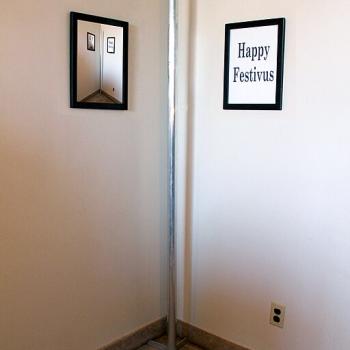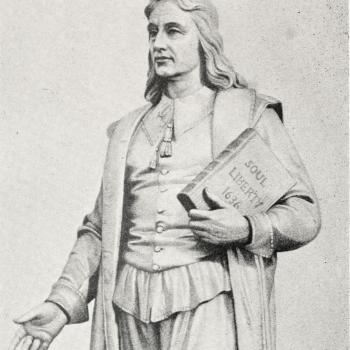North Carolina legislators recently made an ill-fated attempt to introduce Christianity as the state’s official religion. The move was precipitated by an ACLU lawsuit against the Rowan County Board of Commissioners, a board notorious for allowing people to utter Jesus’s name in prayers at their meetings. The establishment proposal generated a predictably breathless response from the left. WaPo’s Alexandra Petri sarcastically wrote, “The North Carolina state legislature can totally establish a state religion. The Founders specifically said so in Article III, in the part where the letters “EXCEPT NORTH CAROLINA CAN DO WHAT IT WANTS” appear in bold flashing letters.”
I certainly do not expect a history lesson on church-state separation and the establishment clause from Petri, a humor columnist, but she offers one nonetheless, and nowhere mentions the fact that the First Amendment, as originally written and interpreted, unequivocally gave the states the right to maintain their establishments of religion, which most of them had going back into the colonial period. “Congress shall make no law respecting an establishment of religion,” the amendment said, meaning that the national government would create no national denomination (unlike what Mother Britain had in the Church of England, which was also the established church of the southern colonies).
As I discussed in God of Liberty, many states started phasing out state-supported denominations after the Revolution and Constitution, but the New England states (minus Rhode Island, which never had an established church) kept theirs. In Massachusetts, the Congregationalist Church remained established until 1833, when the growth of Unitarians, Methodists, Baptists, and other groups made the establishment untenable. But it was not “unconstitutional” in today’s sense.
In Thomas Jefferson’s famous “wall of separation” letter in 1802, he was sympathizing with Connecticut evangelical Baptists who wished that their state would drop its establishment. He commended the First Amendment as building a “wall of separation between church and state” on the national level, and hoped to see the “progress of those  sentiments” in the states, as well. Jefferson, the deistic skeptic, and his evangelical Baptists admirers were delighted when Connecticut dropped its establishment in 1818.
sentiments” in the states, as well. Jefferson, the deistic skeptic, and his evangelical Baptists admirers were delighted when Connecticut dropped its establishment in 1818.
So state establishments of religion – not just saying ‘Jesus’ in public prayers, mind you, but taxpayer-funded denominations – remained constitutional well after the adoption of the First Amendment. So when did they become unconstitutional? Some observers have pointed to the 14th Amendment as a key turning point, because that amendment required the states to guarantee citizens due process and equal protection of the laws. This is partly true, but the application of the 14th Amendment to the establishment clause (technically, the “incorporation” of the clause against the states) did not begin until eight decades after the passage of the 14th Amendment, in the case of Everson v. Board of Education (1947), in which Justice Hugo Black used an expansive reading Jefferson’s wall of separation metaphor as the definitive interpretation of establishment clause for both the national government, and the states. (Never mind that Jefferson was not involved with the framing of the Constitution or the First Amendment.)
For the record, I categorically oppose creating state establishments of religion, because we should be worrying about maximizing religious liberty rather than re-creating establishments. Actual establishments of religion (i.e. state churches), as Jefferson’s Baptist friends knew, are usually not great at protecting religious freedom. But there is a serious historical argument behind the idea that the First Amendment, at least prior to 1947, would allow state establishments of religion.
Of course, no one in North Carolina’s debate is talking about tax funds going to pay pastors’ salaries. The real issue there is whether uttering Jesus’s name in a public meeting represents an establishment of religion. As I have written previously, saying Jesus’s name at county council meetings may be bad religious manners, and an injudicious or even politically cheap use of the Lord’s name. But the framers of the First Amendment never could have imagined that one day secularists would argue that saying Jesus’s name in a public setting should be banned by the establishment clause.












